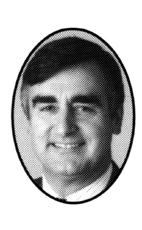Mr. Speaker, I would like to add the voice of the official opposition to that of the government spokesperson in paying all of the honour that is due to Audrey McLaughlin as she moves from the life of an elected representative to the life of a private citizen.
I would like her to tell her that we have all loved and admired her and that we will continue to show her all of the esteem she deserves. When I was on the opposition benches from 1990 to 1993, when the Bloc was not a recognized party, I had the opportunity, since I was in the same corner of the House, to work in close conjunction with Ms. McLaughlin as Leader of the Opposition. I must admit that I learned lessons from her which I try to put into practice daily.
I believe that we must acknowledge the work carried out by this great lady who is leaving the House of Commons for another life, a life in which I know she will be equally productive. We must tell her how much she will be missed. The social awareness she has shown in this House is something that has been building throughout her life. She came to politics from social work. She has worked in the health field, she has worked with children. When she spoke of those causes in the House she knew what she was talking about, and we sensed that in the sincerity of her speeches.
I would also like to remind people that she was the first woman leader of a major federal party. She has blazed a trail for others to follow. We must acknowledge that she has done a good job of doing so, for now another woman will be leading her party.
I do not wish to see her leave the House right away, but I know that the decision she has made to leave the leadership of a great party like the NDP was a very big decision. I hope she will remain extremely active in politics, for the party she has led which is now to be led by Ms. McDonough and in fact has been led by her since the weekend, is a party which represents in English Canada the values to which all of us in the Bloc Quebecois adhere, but which are not exclusive to the Bloc.
We know that social values are very important in English Canada, that English Canada fought long for them. There must therefore be a party in this House at all times to defend those values. I hope that party will be the NDP.
Again, allow me to repeat our regrets that Ms. McLaughlin has stepped down from the leadership of the New Democratic Party, and to wish her from all of us a long and active life. At any rate, we know that she will be following the excellent examples set by Stephen Lewis and Ed Broadbent before her.

